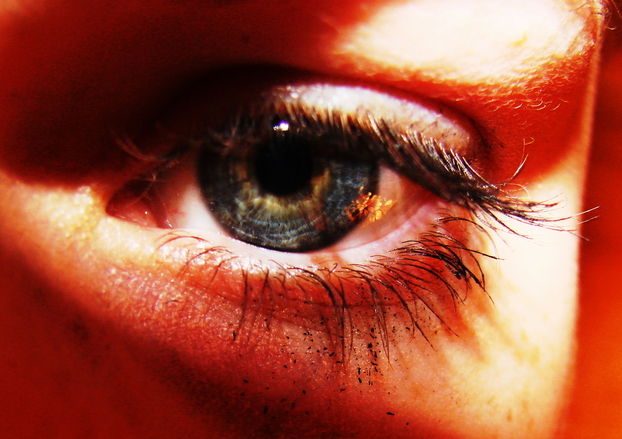You know the feeling—spring hits, your eyelids get puffy, and your eyes start to water and itch so badly that it’s almost unbearable. Your eyes may also make mucus that accumulates on your eyeball, obscuring your vision. The mucus may build up at night, leaving you with a crust on your eyelids when you wake up in the morning. If this sounds familiar, you may be suffering from allergic conjunctivitis, which is especially prevalent in spring and fall when allergies are at their peak.

(Freeimages / R Stewart)
Trees pollens can cause allergic eyes in early spring. Grasses can do the same in late spring. Molds spurred by spring rains can also lead to conjunctivitis.
The term conjunctivitis is derived from “conjunctiva,” which is the membrane that lines the eyelids and sclera (white part of the eye). This lining can become inflamed due to allergies and cause all of the uncomfortable symptoms associated with conjunctivitis or “pink eye.”
If you have suffered from conjunctivitis in the past, you may have tried a few options. First, there are antihistamine eye drops that can help reduce the inflammation that causes conjunctivitis. The drops are available in over-the-counter or prescription forms. You can also try antihistamine pills or tablets, which can reduce inflammation in different parts of the body, including the eyes. Your doctor may be able to help you get started on one of these medications or even a combination of them.
If your conjunctivitis is recurring and stays for more than a few months of the year, or if it occurs for less time but is severe, you may want to talk to a doctor about allergy immunotherapy treatment. Immunotherapy may be an especially good fit for you if you are affected by other allergy symptoms, too, such as hay fever, eczema, wheezing, or asthma.
Allergy immunotherapy can be delivered through subcutaneous immunotherapy (allergy shots) or sublingual immunotherapy (under-the-tongue allergy drops). Both have a distinct advantage over eye drops and allergy pills in that they can help “rewire” your immune system to stop overreacting to allergens in the environment. Where medications provide a short-term band- aid treatment, allergy immunotherapy can provide long-term relief so your allergies won’t keep recurring with each passing allergy season.
Your physician can answer your questions about the allergy test and allergy treatment programs and discuss the cost of allergy drops as compared to allergy shots. If you think pets are contributing to your itchy eyes, your doctor can prescribe shots or sublingual immunotherapy for cat and dog allergies, too.
Spring is a season of renewal and beauty with its greenery, blossoms, and sunny days. If you’re tired of viewing spring through red, itchy eyes, talk to your allergy doctor today.


